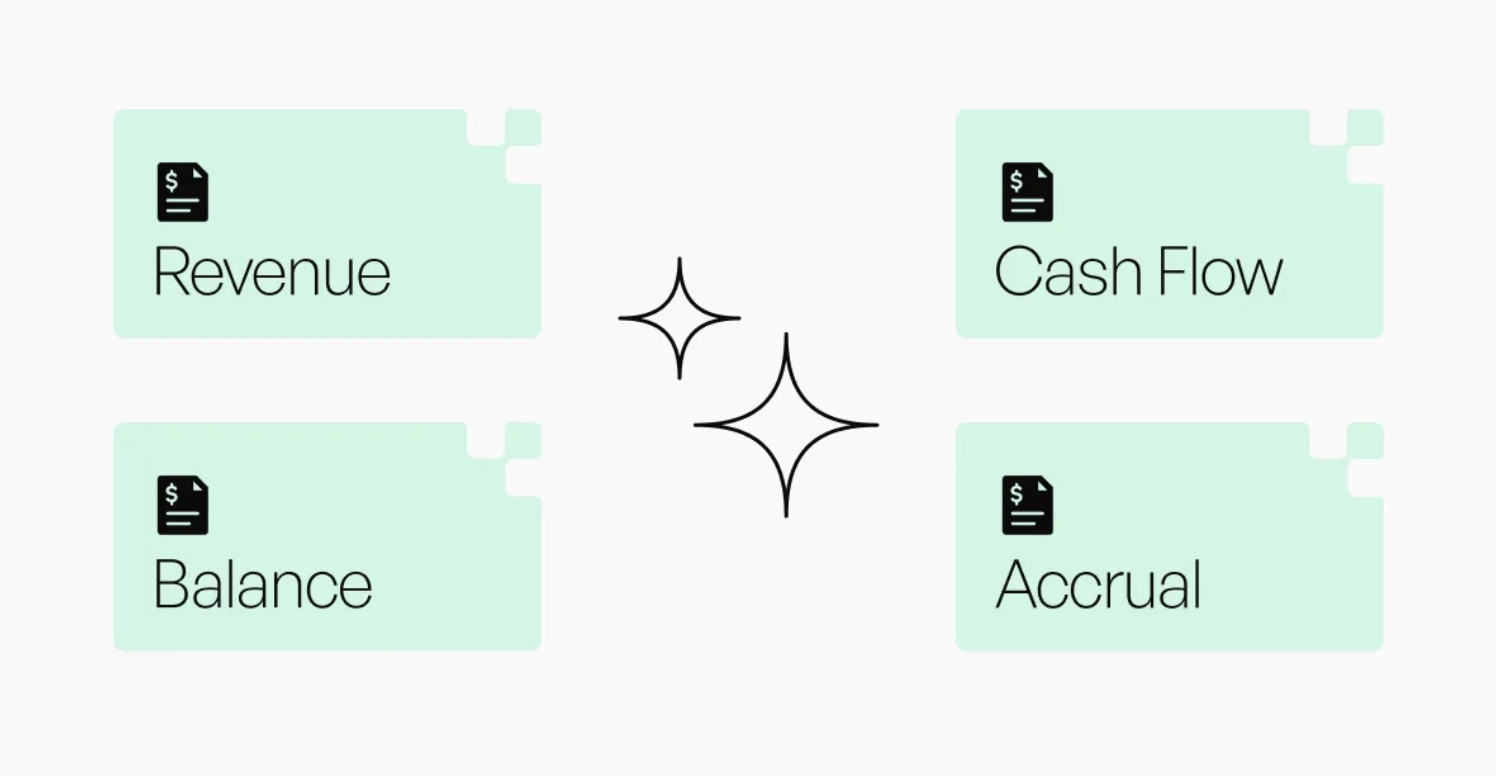When you’re building your business, preparing financial statements can feel like just another task on your to-do list. We get it, breaking focus to perform admin duties is the last thing you want to do.
But we encourage you to think about financial statements differently. They may feel like an administrative task, but they can be so much more than that. If used correctly, financial statements can help you make smarter, more strategic business decisions. And if you use the right software, preparing those reports is simple.
“Financial statement” is a broad term that refers to many different reports, so let’s go over the basics.
At its core, a business’s financial statements include three reports:

Most financial statements also include a notes or disclosures section that provides context to the numbers shown on the face of the financials. Some things that startups might include in their Notes to the Financials are:
Financial statements are clear, undisputed facts about the company’s financial performance. These facts are essential for all businesses, but they’re of paramount importance for businesses that are growing quickly and pivoting strategy on a dime. Here are just a few reasons why financial statements are so important for founders and their businesses:
Public companies registered with the SEC are required to report financial statements, but even non-public entities will need to present financial statements throughout the course of business. A startup might need to present financial reports in the following situations:
Business leaders already have the information they need to develop strategy and make smart business decisions. If they open their accounting software, they’ll see hundreds and thousands of transactions, adjustments, purchases, new investments, etc. But as raw data, the information isn’t very useful.
If you have high-quality software, you can generate draft financial reports at the click of a button. These financial reports can be displayed in a way that’s simple to understand at a quick glance. They can also be dynamic so that you can see only the information that’s relevant to you. Here’s an example of how good software can help you strategically:
Your business developed software used in wearable technology. You are considering adding more salespeople to your workforce, but you aren’t sure how many you can afford to hire. If your accounting system is dynamic and integrates with a high-quality payroll and HR platform, you’ll be able to run reports that tell you:
With this information, you can see the true cost of hiring.
Founders may have good ideas, but unless they can prove that their ideas are financially viable, investors won’t be interested.
Financial statements can help the founder/investor relationship in other ways, though. They can:
Financial statements summarize large swaths of information. On a transaction-by-transaction basis, you may not notice anything is off, but as inefficiencies compound, they’re harder to ignore. Regularly running financial reports, whether they be formal reports or draft reports to be used internally, can help spot inefficiencies, mistakes, and outliers. The faster you spot these problems, the sooner you can address them.
Successful founders are successful for a reason: they’re adaptable, they’re resilient, and they leverage relationships around them. You want business software that has those same characteristics.
Puzzle is a modern accounting software that helps startups improve accuracy of their financial reports. It uses automation technology to categorize expenses and draft reconciliations, making your lives simpler and freeing up time to spend on other things. And when you couple Puzzle with a high-quality HR and payroll platform like Rippling, you’ll see those automations extend beyond the financials and into workforce management. Puzzle and Rippling integrate seamlessly so that your GL always reflects the most up-to-date payroll data.
Get started here:
Discover Puzzle:
👉 Visit Puzzle
Want to activate via Rippling?
👉 Go to Rippling





